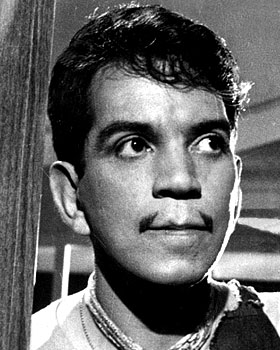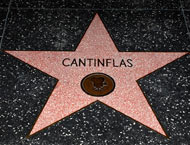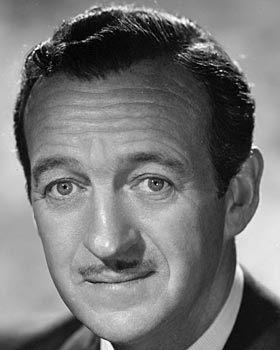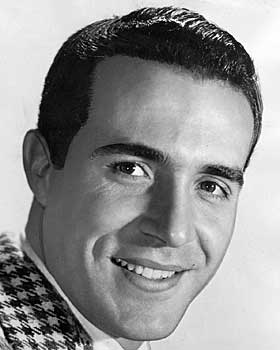Cantinflas
Cantinflas was Latin America's most celebrated and loved comic actor and the man Charlie Chaplin once called "the world's greatest comedian."
Although generations of Latinos were charmed by his garrulity in a variety of parts, he was best known to American audiences for a single role: In the 1956 film "Around the World in 80 Days," he portrayed Passepartout, the bumbling valet of Phileas Fogg, played by David Niven.
Cantinflas made only two films during his brief career in the United States in the late 1950s, but he starred in at least 35 films in Mexico, many for his own company, Posa Films, later known as Cantinflas Films.
It is a measure of Cantinflas' impact upon the Spanish-speaking world that his name became recognized by linguists as a new colloquialism. Literally, Cantinflas has no meaning—the actor made up the word as a stage name. But the noun cantinflada is now defined in the authoritative Larousse Spanish dictionary as a long-winded, meaningless speech, while the verb cantinflear means to talk too much but say too little.
Cantinflas was widely loved for his character el peladito, a penniless urban slum dweller who used his wit and unfailing good luck to escape from impossible situations. Often compared to Chaplin's "Little Tramp," el peladito had a tiny mustache at each end of his upper lip. A tenement dweller and jack-of-all-trades, he wore a tattered vest, a straw hat and a pair of worn trousers held up by rope.
As late as 1983, his film "El Barrandero" ("The Street Cleaner") made more money than any other Spanish-language feature ever shown in the United States.
At the peak of his career in the late '50s, Cantinflas was earning more than $1.5 million a year and was referred to in press releases as the world's highest-paid comedian.
After "Around the World," Columbia Pictures starred Cantinflas in his own, multimillion-dollar epic, "Pepe," which included cameo appearances by more than 35 stars, including Maurice Chevalier, Bing Crosby, Tony Curtis, Frank Sinatra and Edward G. Robinson.
"Pepe" however, failed miserably at the box office and put an end to Cantinflas' career in the United States. He returned to Mexico, where he continued making movies well into his 70s.
Cantinflas graduated from high school and at 15 was sent to an agricultural college. He stayed there for nine months before running away to Jalapa on the Pacific coast, where he joined a carpa, or tent show, and began his career as an actor.
It was in the tent shows that Cantinflas developed el peladito, the picaresque "wise guy" from Mexico City. In a 1957 interview, Cantinflas reflected on the birth of el peladito and the beginning of his career.
"I found out, with no little surprise, that I could give them laughter with a twitching of my mouth, with a sample of the vernacular I had picked up from my neighborhood cronies."
In 1936 he made his first "film," a two-reel advertisement for a trucking company. A year later, he appeared in his first movie for the nascent Mexican film industry, "Asi Es Mi Tierra" ("That's My Country").
He scored his first international success in 1940 with what also was his first full-length feature, "Ahi Esta el Detalle" ("There Is the Detail").
In his second major film, "Ni Sangre, Ni Arena" ("Neither Blood Nor Sand"), Cantinflas plays dual roles—an arrogant matador and a humble, devoted fan. The comedy begins when, through a classic mix-up of identities, the lowly fan is mistaken for the vain bullfighter.
Cantinflas was to perfect the bullfight into one of his most famous routines, performed again and again in arenas in Mexico, Europe and the United States. The scene is one combining both danger and joy. When the bull paws the ground, Cantinflas paws the ground. He reads a newspaper, undaunted, as the bull rushes by. He tumbles into the charging bull's path, and escapes somehow unharmed. His pants fall off, revealing pink, ruffled underwear, and he scampers red-faced to the nearest refuge for repairs. Finally, he plunges a mock sword over the bull's horns and it bursts on contact into a brilliant bouquet of flowers.
"Cantinflas represents the humble Mexican who wants to overcome himself and accomplish something in life," he said in a 1948 interview. "This is the message of the films."
Related stars
|
|





Seven thoughts about Cantinflas
Share a thought about Cantinflas